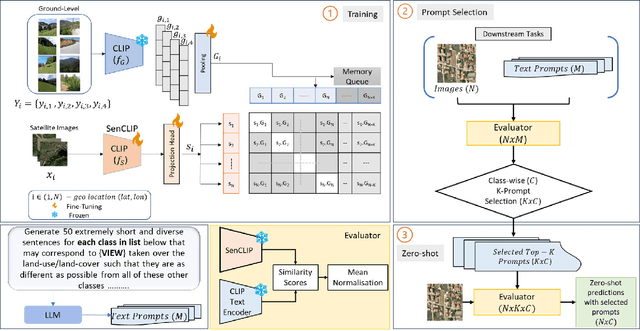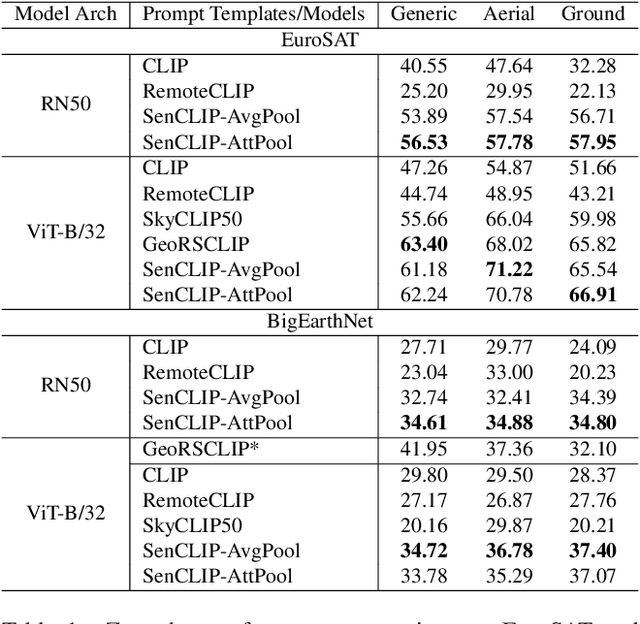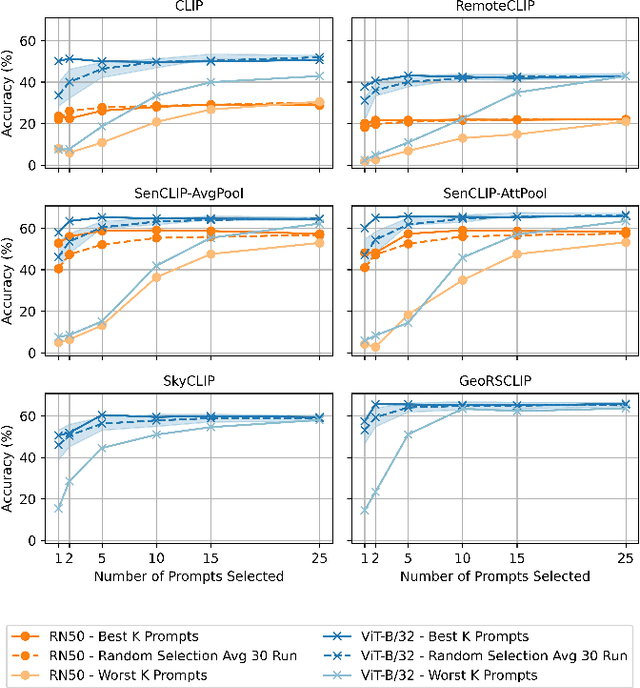Tristan Berchoux
SenCLIP: Enhancing zero-shot land-use mapping for Sentinel-2 with ground-level prompting
Dec 11, 2024



Abstract:Pre-trained vision-language models (VLMs), such as CLIP, demonstrate impressive zero-shot classification capabilities with free-form prompts and even show some generalization in specialized domains. However, their performance on satellite imagery is limited due to the underrepresentation of such data in their training sets, which predominantly consist of ground-level images. Existing prompting techniques for satellite imagery are often restricted to generic phrases like a satellite image of ..., limiting their effectiveness for zero-shot land-use and land-cover (LULC) mapping. To address these challenges, we introduce SenCLIP, which transfers CLIPs representation to Sentinel-2 imagery by leveraging a large dataset of Sentinel-2 images paired with geotagged ground-level photos from across Europe. We evaluate SenCLIP alongside other SOTA remote sensing VLMs on zero-shot LULC mapping tasks using the EuroSAT and BigEarthNet datasets with both aerial and ground-level prompting styles. Our approach, which aligns ground-level representations with satellite imagery, demonstrates significant improvements in classification accuracy across both prompt styles, opening new possibilities for applying free-form textual descriptions in zero-shot LULC mapping.
 Add to Chrome
Add to Chrome Add to Firefox
Add to Firefox Add to Edge
Add to Edge